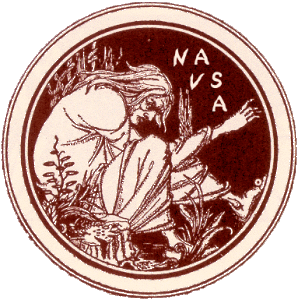 Special Issue of Neo-Victorian Studies
Special Issue of Neo-Victorian Studies
Guest editors: Caroline Koegler & Marlena Tronicke
Since the lesbian publishing sensation of the first of Sarah Waters’s trio of neo-Victorian novels, Tipping the Velvet (1998), nineteenth-century queerness has become an increasingly prominent trope across neo-Victorian media and criticism. On the one hand, neo-Victorian queerness functions as a means of recovering marginalised viewpoints and obscured histories, predominantly, though not exclusively, from the LGBTQI+ community. On the other hand, it serves as a strategic tool to negotiate both alliances and tensions between lesbianism and feminism, queer studies and gender theory, or gender-specific and queer-generic positionalities. This special issue will chart the current directions of queer neo-Victorianism, from its queer roots to its utopian potentials, exploring how notions of queerness as ‘against the norm’ continue to inform and transform neo-Victorian creative practice in a paradoxically more liberal but also more reactionary postmodern world. We invite critical essays and creative pieces that address the following questions: In what ways do queer readings of neo-Victoriana help us uncover which ‘outdated’ nineteenth-century norms and ideologies persist in present-day societies? How might such norms be constructively rethought through queer theory and neo-Victorian texts, in order to achieve more viable and inclusive subject positions? To what extent might we situate neo-Victorianism as an inherently queer project invested in redefining gendered and other forms of subjectivity or identity formation? In addition to welcoming contributions on more recent novels, films, etc. that are either explicitly or implicitly queer-themed, we are also interested in critically neglected neo-Victorian queer texts, such as Chris Hunt’s Street Lavender (1994), Isabel Miller’s Patience and Sarah (2005), or Jessica White’s A Curious Intimacy (2008), among others. Possible topics include (but are not limited to):
- neo-Victorian cultural production and/as queer historiography
- figurations of queered embodiment and ‘Other’ bodies
- neo-Victorian queer politics and activism
- intersectional neo-Victorian queerings of race, gender, able-bodiedness, age, and class
- queer presences/absences in mainstream neo-Victorian productions and adaptations
- queer oversights in the neo-Victorian ‘canon’
- dialogues and dissonances between neo-Victorianism and queer studies
- commodifications of queer neo-Victoriana
- figurations of neo-Victorian queerness in visual media and art
Please send 250-300 word proposals to the Guest Editors, Caroline Koegler at caroline.koegler@uni-muenster.de and Marlena Tronicke at marlena.tronicke@uni-muenster.de, copying in neovictorianstudies@swansea.ac.uk, by 1 August 2019. Contributors will be advised of the editors’ decision by 1 October 2019, with articles due by 1 March 2020.